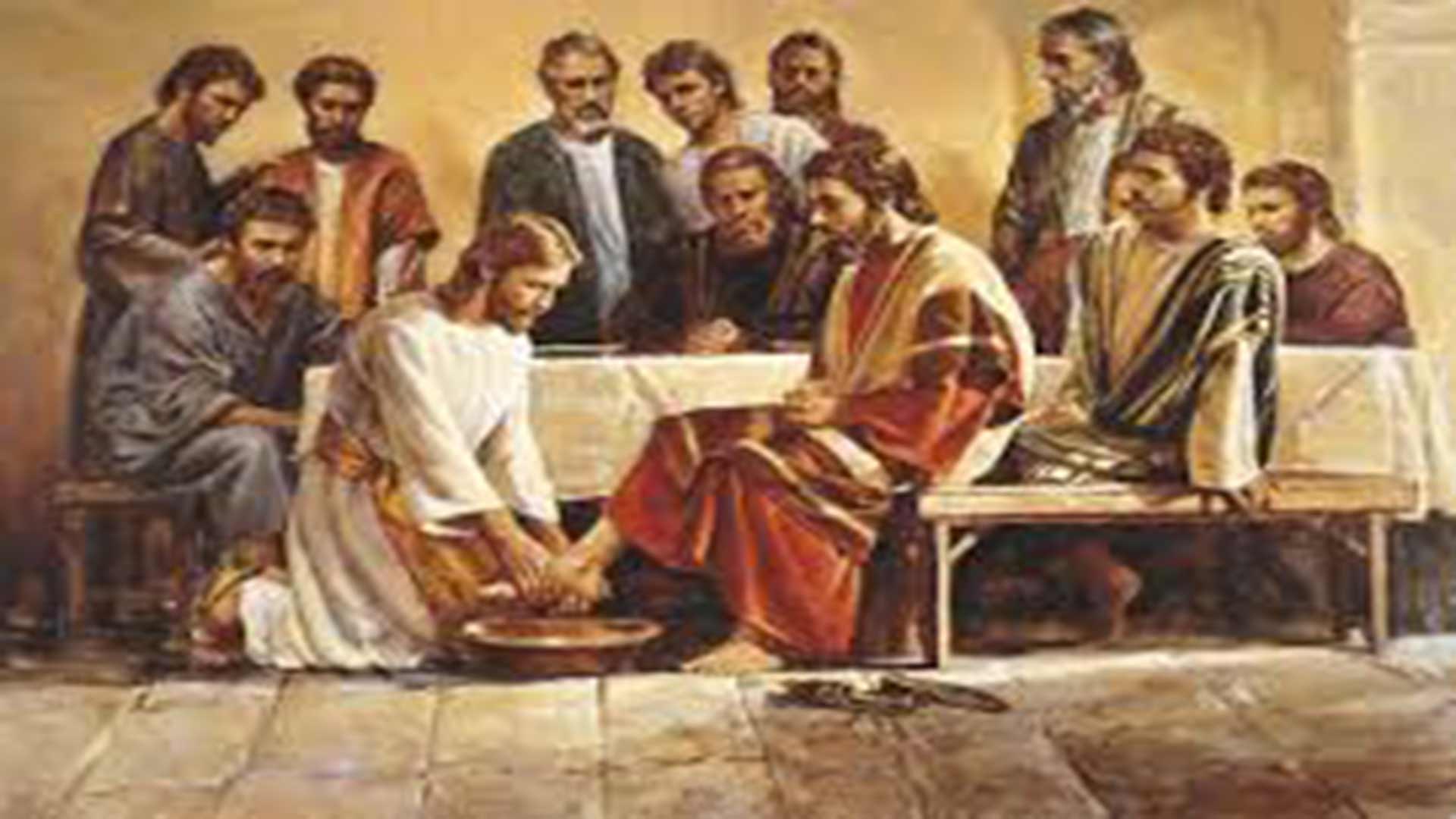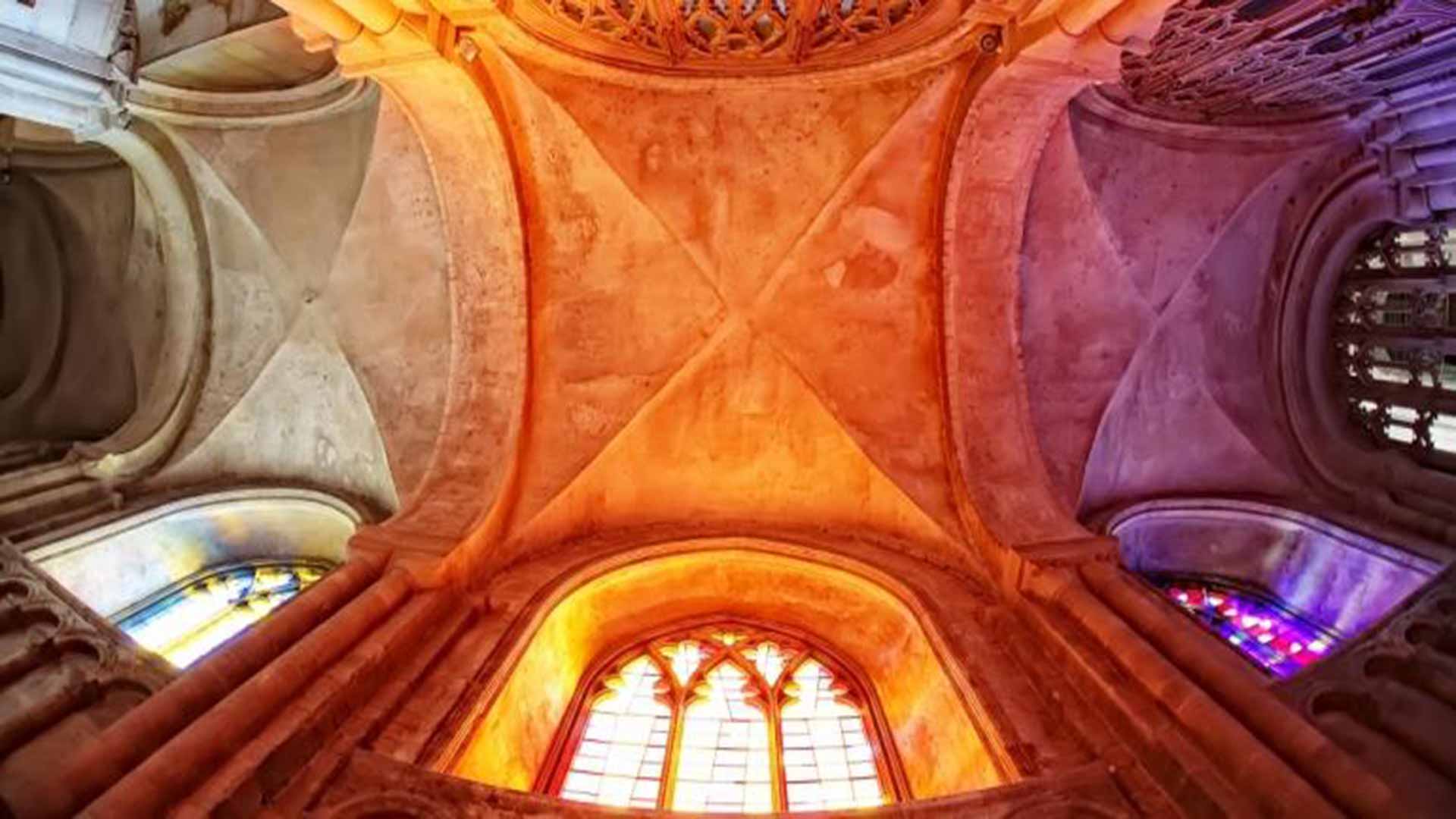The Lord calls us to love one another
LENT 2020 – Day 44
Readings: Ex 12: 1-8, 11-14; Ps 115: 12-13, 15-16, 17-18; Cor 11: 23-26; Jn 13: 1-15
Maundy Thursday is the first day of the Easter Triduum. The readings of the Mass of the Lord’s Supper form a bridge between the historic liberation of the Israelites from slavery in Egypt and the final liberation of the world from the bondage of sin.
The reading from the Book of Exodus points to the origin of Israel as God’s Chosen People. The Lord commands that this month be the first of the year, in commemoration of the beginning of their liberation. He ordains on how to observe the Paschal rituals. These foster a feeling of religious community through the sharing of the paschal lamb. The staining of doorposts with blood of the expiatory lamb is the stamp of the divine that wards off all evil. Unleavened bread eaten in haste accompanied by bitter herbs is a symbol of the suffering from which the Israelites had fled.
When the twelve Apostles celebrated the Passover with their Master, they followed the traditional rite evoking the old covenants. It was also a thanksgiving for God’s many interventions to rescue the Israelites. What the Apostles did not realize, however, was that the Last Supper marked a new beginning. Jesus had anticipated Calvary where He would be presenting Himself as the paschal lamb, the Lamb of God. He did so mysteriously, by converting bread and wine into His Body and Blood. The Son of God made this supreme act of love so as to redeem the sins of humankind. The Holy Mass thus established became the bloodless Sacrifice of the New Covenant.
The Eucharist is a masterpiece of Jesus’ love, the best proof of His love for humankind. He made the Apostles participants in His Priesthood and ordained them to carry out that mystery. He gave them responsibilities and authority: to bind and loose in His name, to forgive sins, to transform the bread and wine into His Body and Blood. This the ordained priesthood would do infinite times, until the Lord’s return to the world. Their role is vital in helping the faithful to carry out their baptismal priesthood.
There was no better occasion than the Last Supper for the Lord to command His followers to love one another. He said, “A new commandment I give unto you, that ye love one another; as I have loved you, that ye also love one another. By this shall all men know that ye are my disciples, if ye have love one to another.” (Jn 13: 34-35) This new commandment is a summary of all of God's law and brings about the definitive liberation.
Speaking to the first Christians, St Paul reiterated that this liberation emerged when the Paschal Lamb, who is the Christ, was sacrificed. Given that we Christians aren’t always united in love, we must take seriously the reminder from the Apostle of the Gentiles: that the Eucharist and the Church – the Sacramental Body and the Mystical Body – are intimately connected. We should place ourselves at the service of our brethren, in humility and love, of which the washing of the Apostles’ feet by our Lord is emblematic. A Eucharist celebrated amidst division cannot be a sign that we are followers of Christ.
Lent, an irresistible balm for the soul
Haven’t we felt listless, not to say ill at ease, about Lent, sometime in our life? As a child, I tagged along with my parents to liturgical services that made little sense. Not surprisingly, on reaching the age of reason, I had to be cajoled into attending them. Then, suddenly, I got a break. I found motets, songs for the season, composed by Goa’s unnamed musicians of old, to be an absolute feast for the ears, alongside similar compositions by Bach, Palestrina and Mozart. I also discovered, quite ironically, that the Via Dolorosa in the balmy evening breeze and to the chirping of birds in the woods of Altinho was not so dolorous after all!
Much as I delighted in those two little secrets, at one point I felt an interior dryness, a sense of futility, as though I were trudging a wasteland. The saving grace came from my grandmother’s exemplary life, which was far better than precept. Likewise, my parents’ quiet commitment to the Faith, amidst their daily toil and moil, provided important insights into the valley of tears we live in. And Scripture wrapped it up so beautifully: “Look at the birds of the air: they neither sow nor reap nor gather into barns, and yet your heavenly Father feeds them. Are you not of more value than they?” (Mt. 6: 26)
Clearly, the rituals that I had cheekily dismissed yesterday changed into victuals for the spirit today. And as another season of Lent comes round, I know just how it will turn out, how they will sustain me…. Beginning Ash Wednesday, I will go to church more often than usual, for Mass and Stations of the Cross. On a hopefully bright and festive Palm Sunday morning, I will feel cheery. Yet, by evening, my mood will change hugely – as it always did when I witnessed the spectacle of the full-size statue of the Suffering Lord emerge from the immaculately white church of the zigzag stairway, to join the faithful clad in dark shades, in a penitential procession through the streets of the capital.
What a poignant start to the Holy Week! It’s the last lap of an all-embracing spiritual journey. You’ll probably catch me shaking off distractions on holy Monday, Tuesday and Wednesday. Through the rest of the week, I will be all eyes and ears to the Mystery of mysteries replayed in the Paschal Triduum, from the moment of that bittersweet Last Supper on Maundy Thursday through excruciating Good Friday and triumphant Easter Sunday. Soon, the week’s darkness will give way to light and its drabness will translate into loud proclamations. The faithful will be beside themselves, singing in an unending refrain: “No one can give to me that peace that my Risen Lord, my Risen King can give.”
It pays to be fools for Christ; Chesterton’s “Donkey” is proof that there will be no regrets. The thought of self-privation, which had bugged me when young, doesn’t assail me. I find it easier now to give up a favourite food or a much-loved pastime. Penance and sacrifice, besides fostering self-discipline and tempering our desires, are game-changers. They help to boost one’s spiritual life and improve our physical health. We are led to find ways and means to step up our knowledge of our faith; perform acts of kindness and mercy, wherever we may be; pray for others, and clean ourselves inside out by means of a holy confession. Before long, we learn to slow down, while the rest of the world is in a rat race, enjoying in a fool’s paradise.
It is reassuring to think of Lent as pilgrimage toward the profound mystery of the passion, death and resurrection of Jesus Christ. Benedict XVI says it is also “a privileged time of interior pilgrimage toward Him who is the fount of mercy. It is a pilgrimage in which He himself accompanies us through the desert of our poverty, sustaining us on our way toward the intense joy of Easter.” How, then, can we be listless or ill at ease at Lent when an irresistible balm for our soul is at hand?
(First published in The Times of India, Panjim, 1 March 2017)

